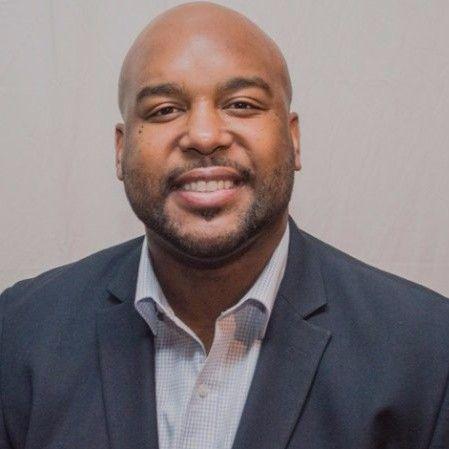
Ready for takeoff: Social value and equity in your community
Equity in infrastructure is becoming the gold standard. Airports are no exception.


Our global aviation lead, Dwight H. Pullen Jr., and our vice president of economic inclusion and social impact, Ken Billups, discuss the importance of building ‘human infrastructure' with an equity, diversity and inclusion (ED&I) strategy that drives transformational change in airport communities.
Connecting families, businesses and goods, airports are akin to small cities. Travelers spend hours in airports beyond the time they’re boarding flights — shopping, dining, working. More than just a transitory space, airports are an ecosystem intricately connected to the city or region in which they are located.
Those involved in planning, designing, building and operating an airport represent the diverse people it serves. Putting equity front and center enables the airport and its surrounding communities to reach their full potential.
Drawing on experience across sectors and projects throughout the United States (U.S.), we have a real opportunity to move the airport industry forward equitably. Here’s how:
Opportunities defined by equity
Equity is driven by leadership and the empowerment of strategic partners. Business inclusion and workforce development practices must be intentionally put in place through a commitment to working with strategic partners within the community, engaging local training programs and schools, as well as building trades and subcontractors to create economic inclusion.
Our work on the Intuit Dome in Inglewood, California, U.S. shows tangible and transformative social value. The project’s development agreements have provisions that give preference to residents and local businesses for jobs associated with the arena. From project inception, the unemployment rate in Inglewood has dropped from 17 percent to 4.7 percent. The city's mayor attributes the development agreements in place at Intuit Dome and SoFi Stadium, which prioritize local residents for construction careers, as a key driver.
At present, Intuit Dome is on track to surpass its outreach program goals, showing the impact of a leadership-driven commitment to meeting and exceeding requirements and goals set forth by our clients for economic inclusion and social impact as part of our project delivery.
We always say it’s not just what we build or what we’re doing, but who’s doing it.
The role of equity in airports
The future of aviation will be defined by best-in-class airports that include a diversity of decision-making and a focus on social and economic community benefits from start to finish. This begins by developing cultural competency or an understanding of all the social groups touched by an airport and how it will serve them. Their needs and opinions are essential as the community should influence the design of the airport.
As part of this, economic inclusion brings buy-in, which is essential to project success. Minority and women-owned local businesses can take part and share in this success as sub-consultants. This enables us to tap into the innovation and expertise already present in the local marketplace, while ensuring a project’s financial wins are shared throughout its community and workforce.
One of the challenges with hiring locally is that sometimes you may hire a smaller firm or subcontractor that ends up taking on more than they are initially equipped to manage. In this case, you shore up and find ways to empower and bring them along. This is equity in action.
When we deliver at airports, we're delivering for the community. We're delivering infrastructure, opportunity and better outcomes.
Leaving the community better than we found it
Successful equitable outcomes mean that an airport leaves the surrounding community better than it was before. This is a core part of our design and construction of the New York John F. Kennedy International Airport Terminal 1 and Terminal 6 expansion projects. Our client, Port Authority of New York and New Jersey, set ambitious targets for minority-owned, women-owned, and local businesses, as well as local workforce recruitments and trade unions, which have been central throughout the project.
Working alongside our JFK Millennium Partners and New Terminal One team, we’ve involved the local community at every stage of the process, updating the Port Authority on where opportunities are happening, how businesses and residents are engaged, reporting on payments that stimulate the local economy and more. We’re helping the Port Authority address equity at every level.
People from all walks of life pass through airports every day: the obvious pilots and flight attendants, business travelers, students, and families, but also military service personnel, restaurant and retail staff, taxi and rideshare drivers, air traffic controllers and baggage handlers. All these people must have a say in and benefit from their community’s airport.
This is what incorporating equity does for a community and what we try to achieve across all our current and future projects. As part of our commitment, we are proud signatories of the Equity in Infrastructure Project (EIP) Pledge, which aims to improve outcomes for historically underutilized businesses (HUBs). Since signing in November 2023, we have taken a lead role in launching the EIP’s Advisory Council* and the California Plan, which coordinates agencies and companies aligned in creating a centralized portal for small and diverse businesses. We’re also working to foster a more business-friendly marketplace by streamlining resources and establishing reciprocity for certifications.
To read more about equity in action, click here: Mainstreaming equity: a toolkit for designing inclusive infrastructure | Sustainable Legacies | AECOM
Equity builds trust and garners success | Sustainable Legacies | AECOM
*Dwight H. Pullen Jr. represents AECOM on the EIP Advisory Council as Vice Chair.